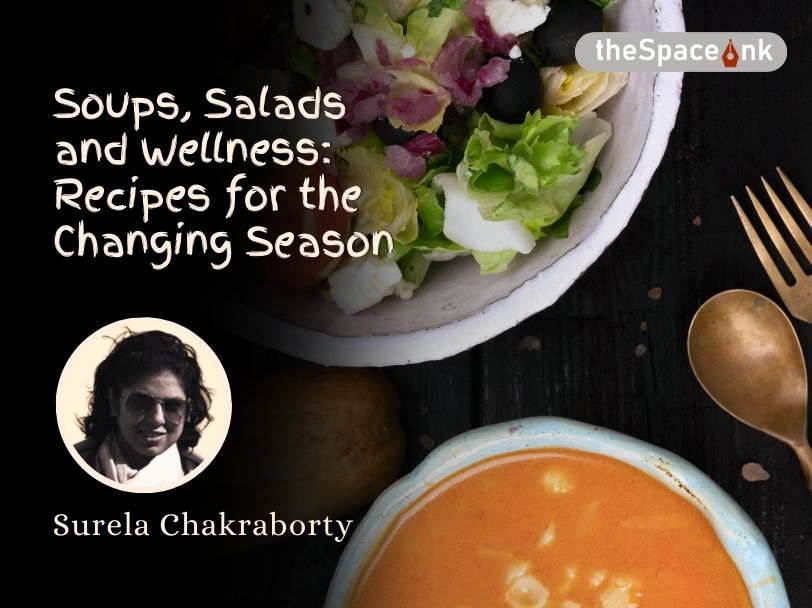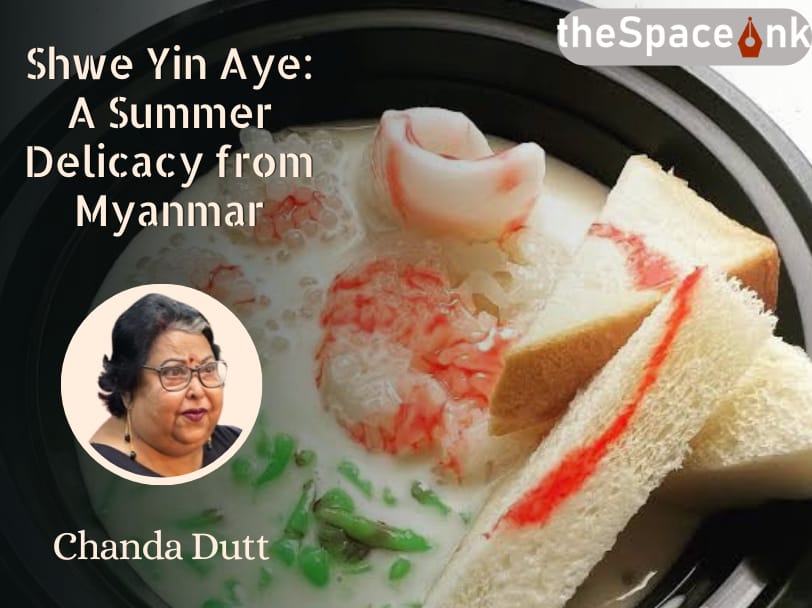
Prologue
It takes a village to raise your kids, and it takes a global village to raise your children. Through this series, “Mumma’s Bindis”, the author shares the stories of the joys of raising two young children in a humanist culture. The central characters of this series are Urja (nickname Momo) and Ujaan, growing up in a Midwestern college town in North America. Born from the hearts of immigrant parents, they ferry between their hyphenated identities spread across two continents. Mumma’s Bindis is the reality of children rooted to the soil they come from yet adapting every day to the dichotomies of the world they belong. A mother recounting the bliss and dares of motherhood. This is the first episode of this series.
Rickshaw on the Milky Way
A slim ray of the Fall afternoon sun cut diagonally through the stainless steel platter. Five healthy tilapias lay on it, dressed in turmeric and a pinch of salt. She had spent the last half hour by the kitchen window scaling the fishes and cutting them into Bengali style steaks perfect for the “machher jhol”.
“That’s not how you do it, Ma” shrieked her fourteen year old daughter. With a gentle shove, the otherwise chore-averse teenager took the slicing knife from her mother’s hand and holding it tangentially along the shimmering length of the fish, kept scaling away with natural dexterity. “Learnt it from the master: you know who” her eyes beamed with pride. “Dadu, of course!”
Yes, she did remember. Her daughter was just about seven then. Going to the Chinese fish market was a regular Sunday afternoon activity. Post-lunch tea in hand, her father was the team-leader, the two grandchildren tugging along on the rear seat of a second-hand Toyota Corolla. She was merely the chauffeur, once in a while chiming in on the tidbits of village stories that Dadu shared with the children! Her father talked about his friend Jibainya and his cataclysmic pranks: rowing the boat out to the Padma river with Dadu and a huge jackfruit on board! All Dadu had wanted was to taste jackfruit, an expensive wish for a school teacher’s middle child. Jibainya, the village chief’s prodigal son acquired a whole jackfruit to fulfill his friend’s wish! “Eat the jackfruit, or else I’ll drown the boat” came Jibainya’s sermon in the middle of Padma! Dadu laughed and shivered remembering the labor of love. Along the way, the Toyota Corolla sometimes stopped at a shoeshine, where her father and the children merrily gave themselves the gift of a brown/black polish, and quibbled about not having the luxury of a rickshaw in America! After all, no Toyota could beat the fun of riding a rickshaw that could stop anywhere and everywhere.

Her father was very particular about his fish: the roes had to be separated and deep fried, the heads cooked in Bengali style murighonto with onions, potatoes, and fine Gobindobhog rice imported from Kolkata on their return trip every year. All through the fish-cutting and dressing ceremony came cups of tea from the kitchen, the first long dip of the teabag reserved for her father, followed by a series of quick dips of the recycled teabag for two little doll’s house-sized cups. “Fried fish roe anyone?” Dadu would call out to the children, and out came the two running out of their pigeonholes.
Every summer they would go on long drives, sometimes to the Upper Peninsula, where the Great Lakes met, and sometimes to down south, in their seven seater van. Dora the Explorer and Scooby Doo backpacks were filled with colorful towels, board games, and the hot and spicy Kurkure snacks pirated from India. “Baba, why do you load your suitcases with all these junk food?” she would complain, and the brother-sister duo would quickly exchange “silent, this too shall pass”-type glances with their Dadu. On these trips, her father was in charge of two big flasks — one filled with black tea, the other with milk tea. Every hour on the road they would stop for a ceremonial tea break. The children got their share of milk tea in Chhota Bhim cups, served with parle G biscuits that came in yellow and red striped packages from the Indian store. Her father had always marveled at how much Momo looked like the little girl on the parle G packet!
Dadu had taught Momo the Surya Pranam Mantra. It was difficult at first, those hard “s”-s in Sanskrit just weren’t sitting on the third grader’s American tongue! Then one afternoon as the twilight was hiding behind the trees, the little girl spotted butterflies — bright orange and yellow winged creatures in a sea of green! She started chasing them, dandelions laughing at her feet, her twirling skirt dancing in the wind, and arms trying to catch the sky! That’s when she heard Dadu’s voice being carried by the wind “Om Jabakusum Sankasang, Kashyapeyo Mahadootim…..” It was not the right time for the Surya Pranam Mantra, or perhaps it was. For at that very moment, when the twilight was about to fall asleep on the butterfly’s wings, the hard “s” magically came to her! And it made music in her Dadu’s ears: “Dhantaring Sarbopapoghno, Pronotoshmi Dibakaram.”
At the end of one summer, it was time for Dadu and Didaan to return. The special Indian channel they subscribed to when Dadu Didaan were in town still played “Binni Dhaner Khoi” at 7:30 pm, the Bengali soap the children watched religiously with their septuagenarian grandparents. But after they left, 7:30 in the evening arrived with the tick tock of the American quiz show Jeopardy! The green bottle of Keo Karpin hair-oil that Dadu would get from the local Indian store stood on the bathroom caddy, only to be occasionally uncapped by Ujaan as if to feel Dadu caught in that Keo Karpin smell.
Sketches by Ujaan, when he was little
Momo entered middle school that Fall, but Dadu never came back from that trip to India. The scrapbook that he had started for Ujaan from newspaper and magazine cuttings lay incomplete. The Indian-style reading corner with low throne-like divans and bright orange cushions where the children would huddle with Dadu after school on tales from the Mahabharata, spent lonely afternoons. And as they nibbled on the super organic arugula-avocado-tomato sandwich, brother and sister silently remembered the Kurkure and parle G filled tea times with Dadu and the Chhota Bhim cups.
On the day of fourteen lamps, the day to cook fourteen special shaak and show the light to your fourteen generations of forefathers, she spent the entire day cooking an ultimate Bengali all-fish meal. Later, when the crisp Fall afternoon will roll into the evening, she will prepare fourteen cotton wicks with her children, fill the painted clay lamps with cooking oil from the kitchen and place them out on the porch facing the stars. The children will know their Dadu by the brightest star shining in the distant firmament. At night Momo will light the little clay lamps in a path to the sky, and together brother and sister will fall asleep dreaming of Dadu riding his favorite rickshaw on the milky way!

Mousumi Banerjee is Professor of Biostatistics at the University of Michigan (USA). She lives in a world of science, trying to make sense of data to take cancer research and treatment forward. But her passion and affinity for the arts gives her sustenance and counterbalances her work as a scientist. Mousumi writes in both Bangla and English. Her work has been published in many literary magazines in USA, India, and Bangladesh, including Telegraph, BanglaLive, Keyapata, TechTouchটক, Antonym, Sahitya Café, Irabotee, Golpopath, Swinhoe Street, Batayan, Parabaas, Manush Mecca. A rare feat is her poetry "White Noise" published in the leading medical journal (Journal of the American Medical Association) that gives a humanistic face to cancer. Her collected poems Eklaghor (Room Alone) was published in Kolkata by Yaponchitra. Mousumi lives with her family in Ann Arbor, Michigan.









One Response
ভারী সুন্দর মনকাড়া লেখা তোমার। পরের অধ্যায়ের অপেক্ষায় উন্মুখ রইলাম